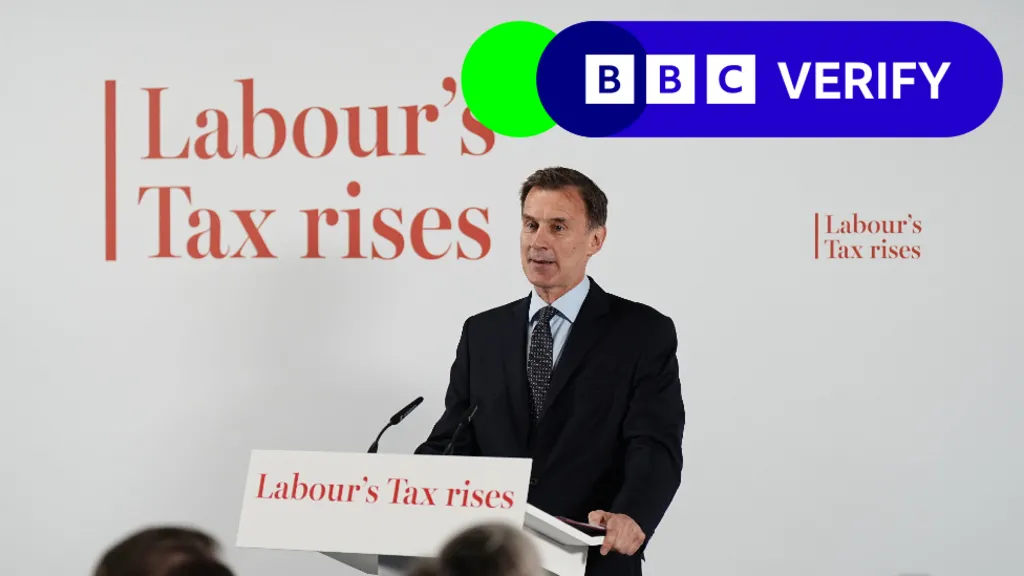
Is Hunt right about a £38bn black hole?
Chancellor Jeremy Hunt has unveiled a dossier adding up how much Labour's spending commitments would cost, with a claim that they would leave a £38.5bn black hole in government finances. Labour, which has accused the Tories of their own spending black hole, has criticised the dossier, saying some of the policies cited are wrong and questioning some of the cost calculations. Many of the 19 items on the Tory list of Labour's spending commitments involve relatively small amounts of money. We've looked at the five biggest, which account for two-thirds of the money involved. Some are accurate, others are less reliable. Hunt hints at another National Insurance tax cut Is Starmer right about a £46bn unfunded tax cut? Green prosperity plan The biggest Labour spending commitment identified by the Tories is the Green Prosperity Plan at £19bn over four years - about a third of total spending in the dossier. That figure is correct. In February, Labour said its policies would involve a £23.7bn investment over the next parliament (five years) – which equates to £19bn over four years. The dossier mentions other much higher figures, but eventually settles on this one. Under Labour's green plan, it is pledging fully clean power by 2030, with the aim of cutting the UK’s greenhouse gas emissions and reducing energy bills. Its policies include setting up Great British Energy – a publicly-owned company to invest in low carbon sources like offshore wind and nuclear – and a Warm Homes Plan to improve home insulation. Insourcing The next biggest commitment is insourcing, which the Conservatives say will cost £6.5bn over four years. The idea of insourcing is to stop public services being provided by private companies and give them back to the state to carry out. There is no question that Labour are enthusiastic about insourcing, but they have not given details of where and how quickly it would happen, so a lot of assumptions are needed to come up with this costing. The calculation assumes that outsourced services are 7.5% more efficient than insourced ones, based on a report from the Institute for Government. But what the report actually says is that while some outsourcing has led to greater efficiency, other attempts have resulted in "significant overspend, while a string of failures has damaged public trust". The 7.5% figure is only mentioned once in the report, as the lower end of the savings from outsourcing cleaning services. The government dossier actually warns about the use of the 7.5%: "We have low confidence in this because the difference between the cost of outsourcing and in-house delivery is highly circumstance specific." Labour have criticised the involvement of Tory special advisers in reaching these costings because they are likely to be more political than other civil servants.

